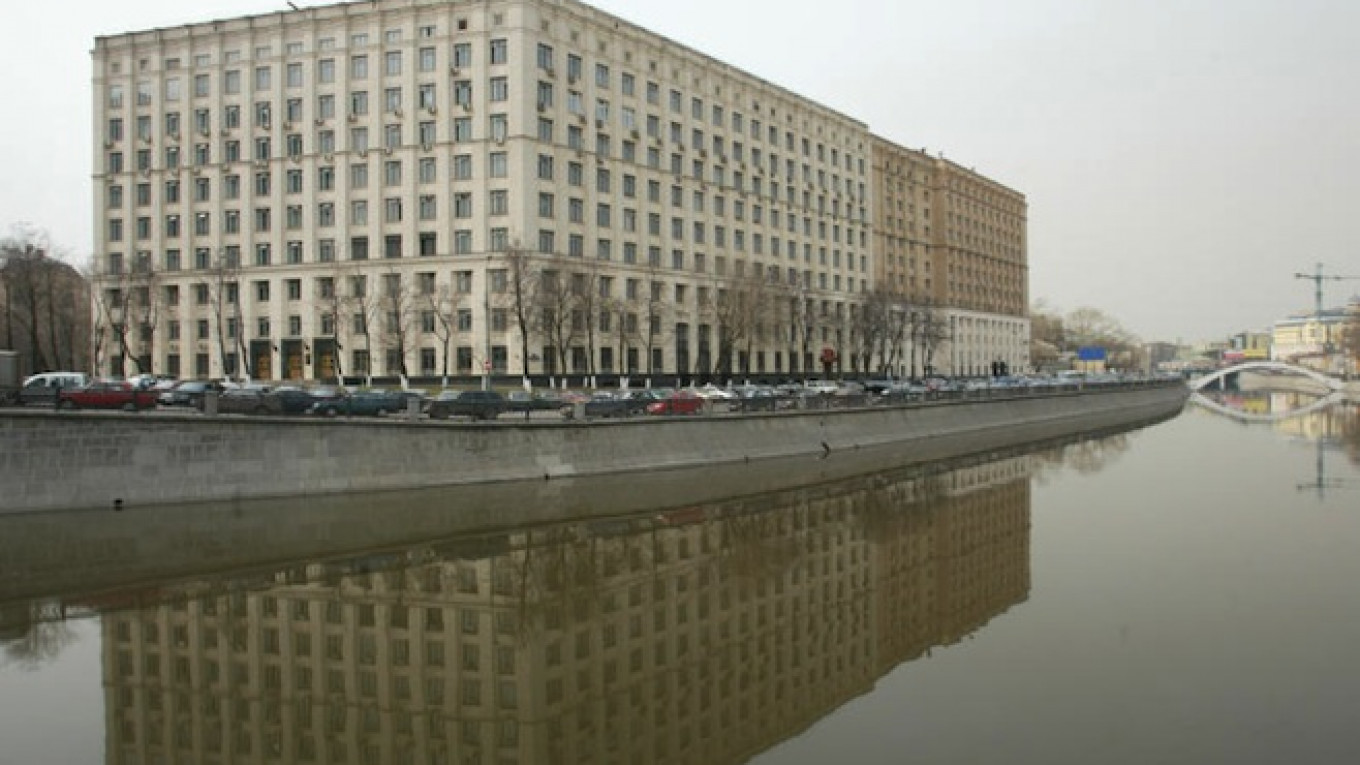The Russian economy could stagnate due to political tensions with Ukraine and cooling relations with the West, the Economic Development Ministry predicted in a three year forecast, Vedomosti reported Wednesday.
Russia's 2014 GDP will grow by only 0.5 percent, down from the 2.5 percent predicted in December 2013, the Economic Development Ministry said. The corrections are due to growing capital outflow, declining investment in state and private sectors, and lower demand for Russian energy resources, said Deputy Minister Andrei Klepatch, Vedomosti reported. Capital outflow may reach $100 billion.
Exports of gas and oil were the driving forces for the Russian economy in 2013, according to federal statistics organization Rosstat. Domestic demand declined throughout 2013.
Despite the government's bleak outlook, some analysts say the official report is optimistic.
"Given the existing trends the slowdown in economy may be even bigger," said Nikolai Kondrashov from the Development Center at the Moscow's Higher School of Economics. The center has done separate research outlining the current trends in the economy and their forecasts are even more pessimistic.
There will be a significant fall in the export figures and in the home demand, according to the Higher School of Economic's report. GDP growth may not grow at all or even shrink by 1.5 percent depending on various factors, including the inflation rate and falling ruble rates.
"We expect the inflation rates to reach about 6 percent by the end of the year. However, if the ruble rates continue to fall, it may be even bigger," Kondrashov said.
"The forecast of the ministry is quite realistic. However, if the political situation worsens, the growth figures may be lower," said Vladimir Tikhomirov, head economist at financial corporation Otkritie. He said the slowdown in the Russian economy is due to larger issues, with the crisis in Ukraine only part of the problem.
"The figures released prove once again that Russia is still highly dependent on the demand for its energy resources and the general structure of the economy has not changed much over the past years," he added.
Pouring big sums of money into the economy will not have a positive effect in the long term, said Kondrashov. He sees only one way to survive the turmoil: minimize the state sector and make attempts to improve the investment climate in the country. Reducing state control is especially important for the banking sector, where the major banks are state-owned, he added.
Contact the author at [email protected]
A Message from The Moscow Times:
Dear readers,
We are facing unprecedented challenges. Russia's Prosecutor General's Office has designated The Moscow Times as an "undesirable" organization, criminalizing our work and putting our staff at risk of prosecution. This follows our earlier unjust labeling as a "foreign agent."
These actions are direct attempts to silence independent journalism in Russia. The authorities claim our work "discredits the decisions of the Russian leadership." We see things differently: we strive to provide accurate, unbiased reporting on Russia.
We, the journalists of The Moscow Times, refuse to be silenced. But to continue our work, we need your help.
Your support, no matter how small, makes a world of difference. If you can, please support us monthly starting from just $2. It's quick to set up, and every contribution makes a significant impact.
By supporting The Moscow Times, you're defending open, independent journalism in the face of repression. Thank you for standing with us.
Remind me later.






